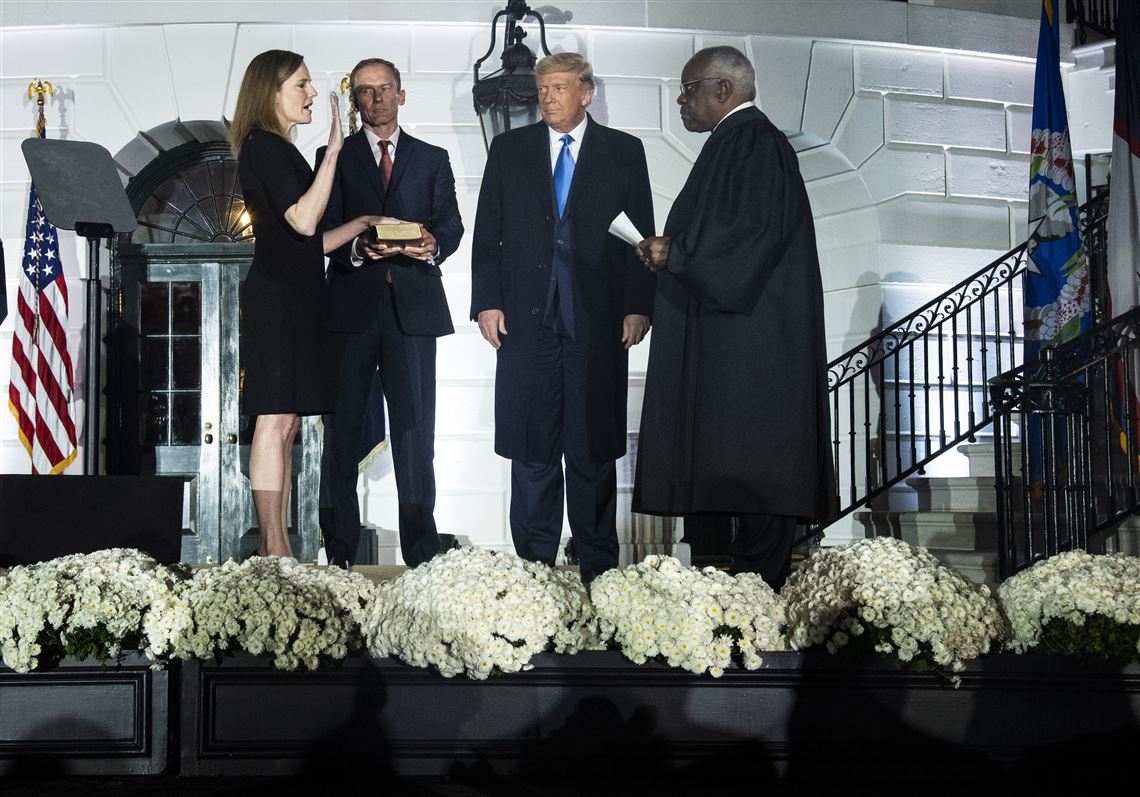I’ve been beating this drum for years. Now there is confirmation that originalism is dead as the dominant judicial ideology. My column today in the Pittsburgh Post-Gazette.
Bruce Ledewitz: The Supreme Court’s majority is beginning to think more clearly
Special to the Post-Gazette
Jan 13, 2025
5:30 AM
The year 2024 was notable for many things, including Donald Trump’s re-election. Last year’s most significant legal event was the end of originalism as the Supreme Court’s dominant approach to Constitutional interpretation.
It is being replaced by a kind of pragmatic judicial decision-making called common law constitutionalism. That used to be the way judges routinely acted. Now even the conservative justices are beginning to think this way, and that is a good development.
A response to liberalism
Originalism began as a response to the liberal Warren Court of the 1960s and the legalization of abortion in Roe v. Wade in 1973. The motivating idea behind it was that the justices on the Supreme Court had gotten away from actually interpreting the Constitution and were judicially legislating their own policy preferences in their decisions.
Originalism argued that the Constitution had to be interpreted in accordance with what came to be known as the “original public meaning” of the text. This method was to be used every time in every case. That is why, in Second Amendment cases, the original understanding that people had a right to possess a gun is upheld in the courts over arguments that an armed population is dangerous.
It would be hard to overstate the degree to which originalism vanquished all opposing theories. Originalism is what judicial nominees mean in Senate hearings when they say that they will enforce the law rather than their own preferences. Liberal Justice Elena Kagan famously said “We are all originalists” at her confirmation hearing in 2010.
With the confirmation of Justice Amy Barrett in 2020, the Supreme Court was dominated by a majority of justices who strongly professed originalism. It was an originalist Court. There was always controversy over whether the Justices were consistently applying originalist interpretations, but originalism remained the ideal.
That is why the failure of any of the Justices to utilize originalism in the two crucial Donald Trump cases in 2024 — cases among the most important in American history — undermines the legitimacy of the method. Far from “all” of us being originalists, it turns out that no one is an originalist when it counts.
In the first case, Trump v. Anderson, decided on March 4, the Court restored Trump to the Republican presidential primary ballot over the decision of the Colorado Supreme Court that he was an insurrectionist, barred from holding any office in the United States under Section 3 of the 14th Amendment. The Court unanimously reversed that decision, holding that states cannot bar an individual from federal office under Section 3.
In the second case, Trump v. United States, decided on July 1, the Court invoked a broad conception of presidential immunity from criminal prosecution to cripple the prosecution of Trump for his involvement in the Jan. 6 Capitol riot and other efforts to overturn the 2020 presidential election. This time, it was the conservative majority — the originalists — who decided the case.
The description of these decisions as not consistent with originalism is widely shared among legal observers, including originalist law professors.
Originalism had pretty clear answers in both cases. In the ballot case, the 14th Amendment is, and has always been understood as, binding on the states whether Congress acts or not. States were bound to grant equal protection and due process as soon as the Amendment was adopted. In originalist terms, the only issue before the Court was whether Trump was actually an insurrectionist.
Similarly, both text and history demonstrate that there should be little or no presidential immunity from criminal prosecution once a president leaves office. This had been so clear that Trump’s defense in his impeachment over Jan. 6 was that the matter should be left to later criminal prosecution.
Why did originalist justices abandon originalism in these two crucial cases? Democrats had an easy answer: the justices are Republican Party hacks who followed their party’s line and backed Trump.
That seems clearly wrong to me. After all, Chief Justice John Roberts was obviously highly involved in both cases — he wrote the immunity decision and was reported to be behind the ballot decision as well. But this is the same Justice Roberts who saved Obamacare, twice. Anyway, the Court was unanimous in the ballot case, including the liberal Justices.
Catastrophic originalism
No, in these two cases the Justices abandoned originalism because the answers it gave would have been bad — actually catastrophic — for both the Court and the country.
If the Court had determined the merits of whether Trump was an insurrectionist, the Justices would have been seen as essentially deciding the 2024 presidential election, whichever way they decided. If they had barred Trump from the ballot, half the country would have seen a conspiracy. If Trump were not barred, the other half of the country would have seen the same.
As for presidential immunity, if the Court had gone the other way, Trump, or a different Republican president-elect, would now be planning the criminal prosecution of Joe Biden — as would presidents far into the future. Democracy might not have survived.
This common law constitutionalism is clearly back.
When even originalist Justices feel that judicial prudence is necessary, no purely objective interpretive method will work. That is the end of originalism.
Bruce Ledewitz is a professor of law at the Thomas R. Kline School of Law of Duquesne University. His previous article was “Israel is now a politically partisan issue.” The views expressed do not represent those of Duquesne University.
First Published: January 13, 2025, 5:30 a.m.






0 Comments